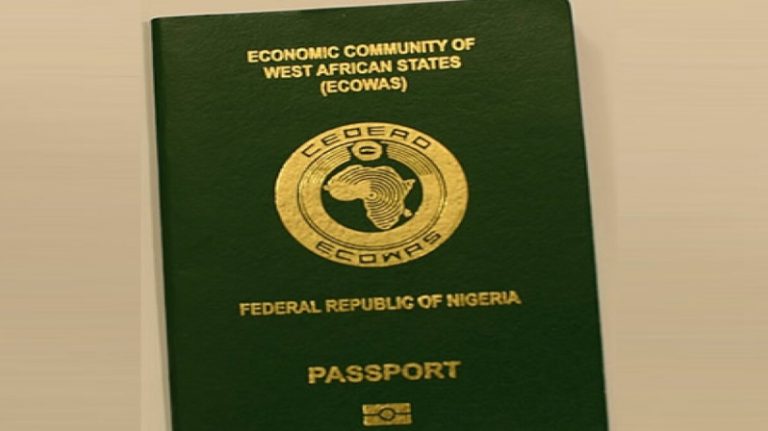
In a significant policy shift, the Federal Government of Nigeria has officially announced an upward revision of passport fees for citizens residing within the country, set to take effect on September 1, 2024.
The fee adjustment was made public through a statement released on Wednesday by DCI KT Udo, the Service Public Relations Officer at the Nigeria Immigration Service (NIS) Headquarters. The announcement was also posted on the official X (formerly Twitter) account of the NIS, ensuring that the information reached a wide audience.
This move is part of broader efforts to enhance the quality, security, and international credibility of the Nigerian Standard Passport, according to the NIS.
Register for Tekedia Mini-MBA edition 19 (Feb 9 – May 2, 2026): big discounts for early bird.
Tekedia AI in Business Masterclass opens registrations.
Join Tekedia Capital Syndicate and co-invest in great global startups.
Register for Tekedia AI Lab: From Technical Design to Deployment (next edition begins Jan 24 2026).
Under the new pricing structure, the cost of obtaining a 32-page passport booklet with a 5-year validity will rise from N35,000 to N50,000. Similarly, the fee for a 64-page passport booklet with a 10-year validity will increase from N70,000 to N100,000.
The NIS explained that the hikes were prompted by the government’s commitment to maintaining the passport’s quality and ensuring it meets the rigorous standards required for international travel and identification. It also noted that the decision to raise fees was driven by the need to cover the increasing costs associated with passport production and issuance.
These include the expenses tied to integrating advanced security features, adopting new technologies, and ensuring the overall sustainability of the passport issuance process. The NIS emphasized that the revision is essential for preserving the integrity and credibility of the Nigerian passport in the global arena.
The fee adjustments apply solely to Nigerians living within the country, with no changes to the fees for citizens residing abroad. This distinction acknowledges the different economic conditions faced by Nigerians at home compared to those in the diaspora.
The Nigeria Immigration Service also acknowledged the potential inconvenience that the fee increase may cause for prospective applicants. However, it reassured the public of its dedication to providing transparent, efficient, and high-quality services. The agency stressed that despite the fee hike, it remains committed to facilitating a smooth and reliable passport application and issuance process.
The official statement from the NIS announcing the fee increase is as follows:
“As part of its efforts to maintain the quality and integrity of the Nigerian Standard Passport, the Federal Government has approved an upward review of the fees for the Passport effective from 1st September, 2024. Based on the review, a 32-page Passport booklet with 5-year validity, previously charged at Thirty-five Thousand Naira (N35,000) will now be Fifty Thousand Naira (N50,000) only; while a 64-page Passport booklet with 10-year validity, which was Seventy Thousand Naira (N70,000), will be One Hundred Thousand Naira (N100,000) only. However, the fees remain unchanged for Nigerians in the Diaspora.”
“While the Nigeria Immigration Service regrets any inconvenience this increase might cause prospective applicants, it assures Nigerians of unwavering commitment to transparency and quality service delivery.”
Impact of Naira Devaluation
The increase in passport fees is not happening in isolation; it is believed to be a direct response to the ongoing economic challenges in Nigeria, particularly the sharp devaluation of the naira. The devaluation, which has triggered a surge in inflation, driving up the cost of goods and services across the country has placed a heavy burden on various sectors, including government operations, which are heavily reliant on imported materials and services.
The production of passport booklets involves significant foreign exchange components, as materials are often sourced from international markets. With the naira’s depreciation, these costs have escalated, making it unsustainable to maintain the previous fee structure without compromising the quality and security standards required in today’s global environment.
A Ripple Effect Across Government Agencies
The NIS is not the only government agency adjusting its fees in response to the economic downturn. The Nigerian Customs Service (NCS) has continued to revise its charges for clearing goods at ports, aligning them with the fluctuating exchange rates. The devaluation of the naira has significantly increased the cost of importing goods, leading to higher duties and taxes, which are calculated based on the prevailing exchange rate.
As the naira continues to take a beating in the foreign exchange market, more government agencies are expected to follow suit, raising their charges to cope with the increasing operational costs. This trend reflects the broader economic challenges facing the country, where inflationary pressures and currency devaluation are forcing both public and private sector entities to re-evaluate their pricing strategies.



